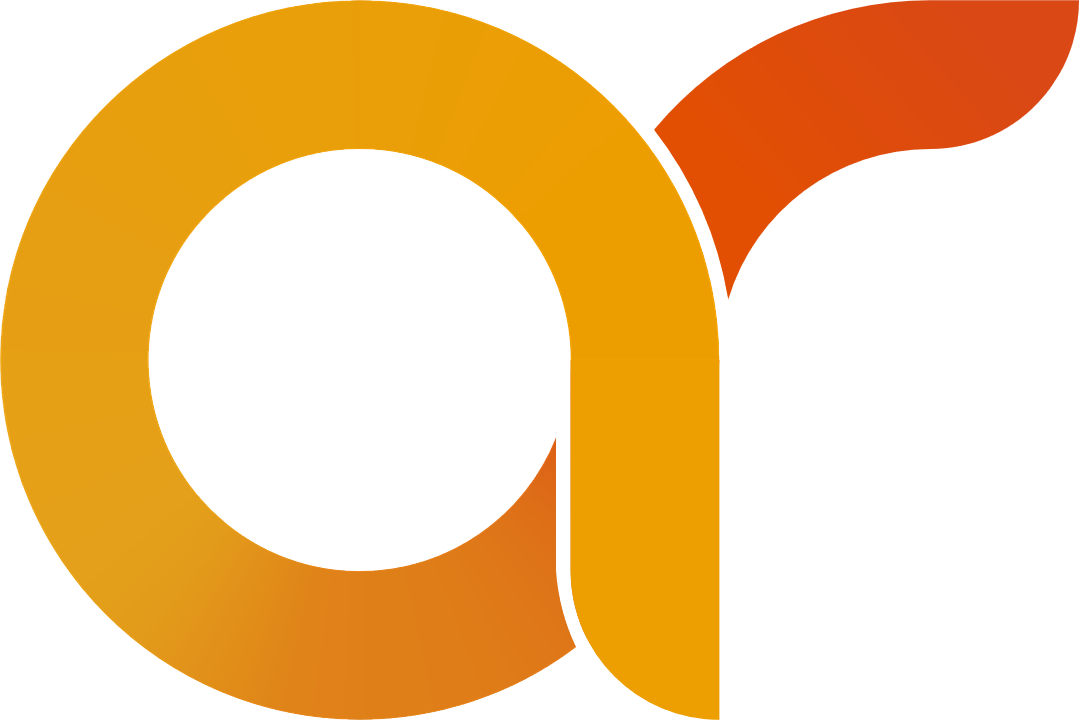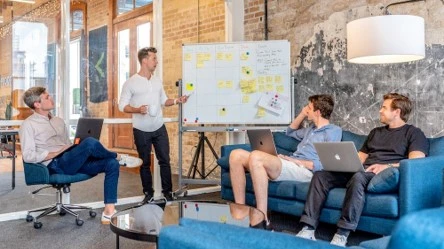Anyone talking about New Work today will find various definitions on the internet, all of which of course have to do with the change in work from the past to the present.
But one thing is certain: with the introduction of AI, the understanding of the employee and the tasks of daily work are also changing. This blog article looks at how AI can be used sensibly to implement strategies of new work with AI and combine technology and working methods in a meaningful way.
What is New Work?
New Work is a concept that focuses on modern working methods and environments that promote flexibility, self-determination and a sense of purpose in the workplace. It is about breaking down traditional hierarchies, creating space for creativity, enabling a healthy work-life balance and promoting the individual strengths and potential of employees.
However, this blog article is not about New Work as a whole, but about New Work in relation to knowledge management and AI in companies – because current developments are already opening up huge potential in this area alone.
What is New Work changing in companies?
What has been preached for years is now becoming reality and we already know it from the internet. Nowadays, it is no longer a question of employees having all the knowledge in their heads, but of applying it correctly and making the right decisions based on it. It should be the same in companies. Especially in times of a shortage of skilled labour, companies will struggle to find employees with the desired qualifications and the right depth of knowledge. Furthermore, changes in technology are creating so many new jobs for which there are currently no qualifications/training that employees cannot rest on the expertise they have acquired during their training/studies. Companies need to enable employees to access existing in-house expertise as quickly as possible and use the knowledge correctly and make appropriate decisions with transfer performance and various methodologies. And this requires new tools and a new mindset.
Employees know it from their private lives
In our private lives, everyone uses internet search engines such as Google and the like to find information as a matter of course. The first step is to get an overview and weigh up different things against each other. This creates a basis for decision-making. Since November 2022, the whole thing has moved from a pure search mechanism to a chat – ChatGPT has become indispensable for many private individuals and prepares knowledge directly in the form in which someone needs it.
Naturally, this also raises employees’ expectations of the software used in the company. We often hear the question of why business software has to be so complex when what we know from our private lives is so easy to use…
The status quo in most companies
However, many things still work differently in companies. Employees are expected to come to the company with in-depth knowledge and use this as human capital. They are expected to familiarise themselves with the subject matter in depth before “just using tools” and not understanding the context. This is all understandable, but it takes far too much time to search for everything in the first place and often read through large chunks of irrelevant information in order to obtain the desired information. An AI (correctly integrated into an enterprise search, for example) can support an employee in exactly the right places to answer open queries.
How about transferring what employees know from their private lives to the company and offering them tools with which they can quickly obtain internal company information. The employee’s task would then suddenly be to use the information found and, above all, the relevant information, to utilise it and, if necessary, to develop it further in order to make a decision based on it. The task would no longer be to first search out the relevant information, pre-filter it, etc., because AI can do all that very well these days. Incidentally, with amberSearch (a kind of Google for companies) and amberAI (a kind of ChatGPT for companies), we are building exactly these kinds of tools to enable this change in companies.
We are not saying that the employee will become irrelevant, but we are saying that some of the tedious and often necessary preliminary work involved in making a decision can very easily be taken over by AI. Of course, the employee must think for themselves and not blindly trust such a system!
The advantages of New Work and AI for companies and employees?
AI is perfect for taking over some of the knowledge work, as retrieval augmented generation systems, for example, can process information live and “on demand”, taking access rights into account. There is no need to create time-consuming FAQs or similar, as the latest information is always available live. The employee is no longer occupied with time-wasting tasks (searching, breaking down, processing, …), but can focus on the work that really adds value:
- Making decisions that an AI cannot make (at least not yet)
- More work on/with/for the customer
- Significant increases in efficiency
- Significantly faster high productivity, especially during onboarding
- An opening for career changers who can be supported accordingly by an AI
- And much more…
What does New Work with AI change for the selection of employees?
Whereas in the past it was primarily technical expertise that had to be tested and queried, it is now much more about an employee’s soft skills and methods. How well is an employee able to utilise transfer knowledge or use methodologies and AI tools to achieve the same results as someone who has a few years’ head start in a company? In addition, this makes companies much more diverse and there are umpteen studies that show that more diverse teams are more successful than homogeneous teams.
Of course, for companies this means that they have to recruit employees according to different criteria and that they also have to ask different questions. A successful introduction of New Work begins when the mindset established for the company is exemplified by the managers.
This kind of change does not happen overnight. It takes time and employees must be given the tools and the opportunity to find their own way. And as a company, you have to define a digital strategy: where do you want to go, how do you want to work and go down this path together with your employees.

